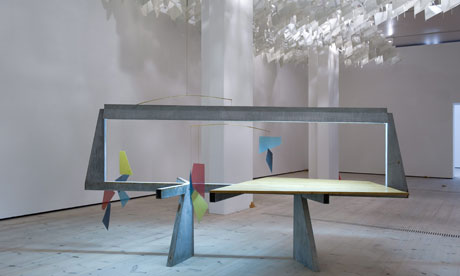Artists are kicking up a fuss over the recent changes to a Glasgow licensing law, and we’re with them. If enforced, the rule would require a “Temporary Public Entertainment License” – costing hundreds of pounds – for every exhibition in the city, and potentially put an end to the pop-up galleries, DIY spaces, and apartment shows that made the city the creative powerhouse it is today.
The text of a petition circulating about the fees does a good job of capturing the problems with the new rule:
This petition is a response to Glasgow City Council’s announcement that from 1 April 2012, a licence will be required to hold free events such as exhibitions and performances. Previously a licence was only required for events charging admission. We, the undersigned, believe this change will be damaging to the foundations of Glasgow’s art community and wish to have the changes repealed.
Visual art thrives in Glasgow. The Arts and Humanities Research Council have recently awarded £122,500 to the Glasgow School of Art for the express purpose of studying the phenomenon known as the “Glasgow Miracle” – the overwhelming success of art in Glasgow. (BBC News 2012) For many artists, gallerists, and enthusiasts the explanation of this success is simple: art in Glasgow is driven by a core community of hard-working, early- to mid-career artists with a strong do-it-yourself ethos. Artists in Glasgow take empty warehouses, factories, shops, offices and transform them into vibrant, productive spaces. Locations such as IRONBBRATZ Studios, based in a former Merchant City office, demonstrate Glasgow’s resourcefulness in utilising unconventional spaces to host events featuring both local and international talent. To require artist-led initiatives such as these to apply for licences to host free events would exhaust small budgets.
The application fee for a Public Entertainment Licence is costly – based on the previous year’s figures the licences range from £120 to £7500. It is also a lengthy process, requiring months of notice to the Council and 21 days of public notice via signage posted on location. Artist collective The Mutual, for example, do not have permanent premises and rather host exhibitions in a variety of venues, each of which would require licensing under the amended law. It would almost certainly bring a close to the “pop up” exhibition in Glasgow – the use of empty shops between leases as temporary exhibition spaces. The months of planning required to apply for a Public Entertainment Licence would undermine the spontaneity and flexibility required of such events and organizations.
Even if you’re not from Glasgow, or Scotland, or the UK, this is important: Glasgow’s produced a host of Britain’s most talented artists, from folks like Douglas Gordon and Ian Hamilton Finlay to Susan Phillipsz and Martin Boyce. It’s produced four of the past seven Turner Prize winners, despite being roughly the size of Indianapolis. It is, without question, the most important artistic center in the country outside of London, and that success has largely been built on a DIY culture that this fee could strangle right out of existence.
So here’s the deal, Glasgow: you’ve got three things going for you, as a city. You’ve got the art thing, you’ve got the Rennie Mackintosh merchandising thing, and you’ve got the thing where everybody incessantly murders one another and ears get bitten off at KFC. I think you wanna go with the art thing.
[Editor’s Note: If you’re reading this and you’re not, actually, a sentient City of Glasgow, maybe just sign the petition.]



{ 2 comments }
a few years ago baltimore city proposed something similar, live entertainment licenses costing like $1200Â a year, which had the diy art and music community pretty worried. somehow, either through amendments to the proposed bill or maybe just looking the other way when it came to diy arts spots, i can’t remember, it ended up not being a big problem. worriesome though for a city that thrives through such places.
Sentient city ? Did you mean citizen of the city? And spellcheck helpfully changed it for you?
Comments on this entry are closed.